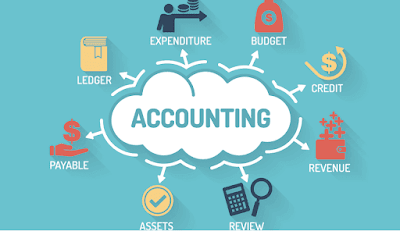5 Ways for a More Secure Business and Better Cash Flow
1. Cash Flow Projection
Accounting outsourcing services can assist you with your balance sheet, income statement, and budget, giving you a hazy picture of how much cash is truly flowing in and out of your business, as well as how much you can expect to be there next week when payroll is due. As a business owner, you should review a cash flow statement and cash flow projection on a regular basis to see how the coming year, quarter, month, or even week will likely unfold.
Forecasting your cash flow helps you to see how it will vary in the future. It evaluates your company's previous performance, the rate at which clients normally pay, and your currently forecast receivables, in addition to your own schedule of payables, your current cash situation, and a variety of other factors.
A cash flow forecast provides you with insight into your future cash flow, helping you to anticipate issues before they emerge rather than reacting after the fact. As a result, you'll be able to come up with fresh strategies to prevent your firm from falling to the bad impacts of a cash flow crisis.
2. The initial stage in predicting is data collecting
Now that you've grasped the importance of a cash flow forecast, let's go into the details.
It all starts with having fast and accurate financial data at your fingertips. For accurate cash flow projections and excellent cash flow management, data collection is practically entirely accountable.
Cash flow forecasting entails generating an educated guess about your firm's future cash flow based on all of your firm's prior (accurate) financial data, such as:
- In the past, revenue, costs, and profits
- Personal impending expenses
- Vendor payment procedures
- Your clients' payment history
You'll always have correct data owing to automated data collection that accurately tracks the cash moving in and out of your business. With data at your fingertips, you'll be able to predict your future cash flow as accurately as humanly possible.
3. Best Practices in Receivables Management
The handling of receivables is critical. The most essential thing to remember when it comes to receivables management is to keep money coming into your business.
Consider using the following best practices in receivables management to minimise cash flow problems or to help your organisation overcome a current challenge:
- Invoice on time and follow up as soon as feasible on late accounts.
- Accept electronic payments to give a range of payment alternatives to your clients. Electronic payment options not only make it easier for your customers to pay you, but they also get the money into your account faster because you don't have to wait for a check to come in the mail and then for cash to be collected in your account.
- Offer a discount if you pay quickly. Consider incentivizing early payment with a discount if you're having problems persuading clients to pay you on the last day of their payment term. Just double-check your profit margins before deciding on a discount rate, and make sure you have enough wiggle room to make adjustments.
- Make adjustments to your payment policies to require a deposit or partial payment in advance. This will increase cash flow by lowering the number of days sales are outstanding.
- Avoid payment delays and unpaid bills by requiring a credit check on all new noncash customers.
- Keep track of your receivables to identify customers that are slow to pay.
You have two options: modify their payment terms to ensure that you are paid when you need it, or stop doing business with them in the future.
As is customary, make use of the technological advantages available to businesses. Tasks that used to take a long time and required a great deal of responsibility may now be easily automated. Fully integrated software from companies like Bill.com simplifies your bookkeeper's labour with automatic invoicing, payment reminders, and quick collections.
4. Improving Cash Flow by Managing Payables
In order to regulate cash flow and rescue your firm in the event of a shortage, payables management must be strategic.
- Using this cheat sheet, consider applying the following accounts payable best practices:
- Utilize your vendors' payment options to the best extent feasible. If you don't have to pay for 30 days, pay with electronic payments on the 30th day. This allows you to keep more money in your firm for a longer period of time, allowing you to put it to the best possible use until you have to pay a debt.
- Before paying early in exchange for a discount, consider the real savings and if your cash flow can manage the consequences. While early payment discounts are enticing as a means to save money on needless expenses, they are not always worthwhile. They can feel like giving a vendor a zero-interest loan for the duration of your actual payback period at times.
- Look for payment methods that are adaptable. You're probably searching for the best value in exchange for the best product or service when it comes to vendors. However, you should consider the payment terms given by the company.
Keep in mind that the more money you save, the better off you'll be. So, before you reject discounts or pay extra for more flexible payment terms, consider if you truly need to sacrifice prospective savings in order to improve cash flow management.
5. You may prevent shortages with better pricing.
One of the most common causes of cash flow problems in businesses has little to do with payment schedules and everything to do with pricing problems.
Pricing is the most essential decision any business owner will make. You'll have cash flow troubles if you don't charge enough for your services – that's the entire story.
So, how might better pricing help you enhance your cash flow? Begin by establishing the genuine worth of your services in order to seek adequate remuneration.
Automated Processes Improve Cash Flow Management
What do all of these approaches to cash flow management have in common? To automate your back office, you'll need integrated software solutions.
Thanks to automation, better cash flow management is not only imaginable but also attainable and affordable. By automating your bookkeeping and accounting activities, you'll save time and minimise cash flow issues.
Thanks to a smart back-office, you'll always have access to accurate financial data and cash flow numbers, as well as appropriately timed invoices, collections, and bill payments. If your cash flow management is this well-coordinated, your organisation may win gold in the cash flow Olympics.
Contact us immediately for stress-free and dependable accounting outsourcing services!



Comments
Post a Comment